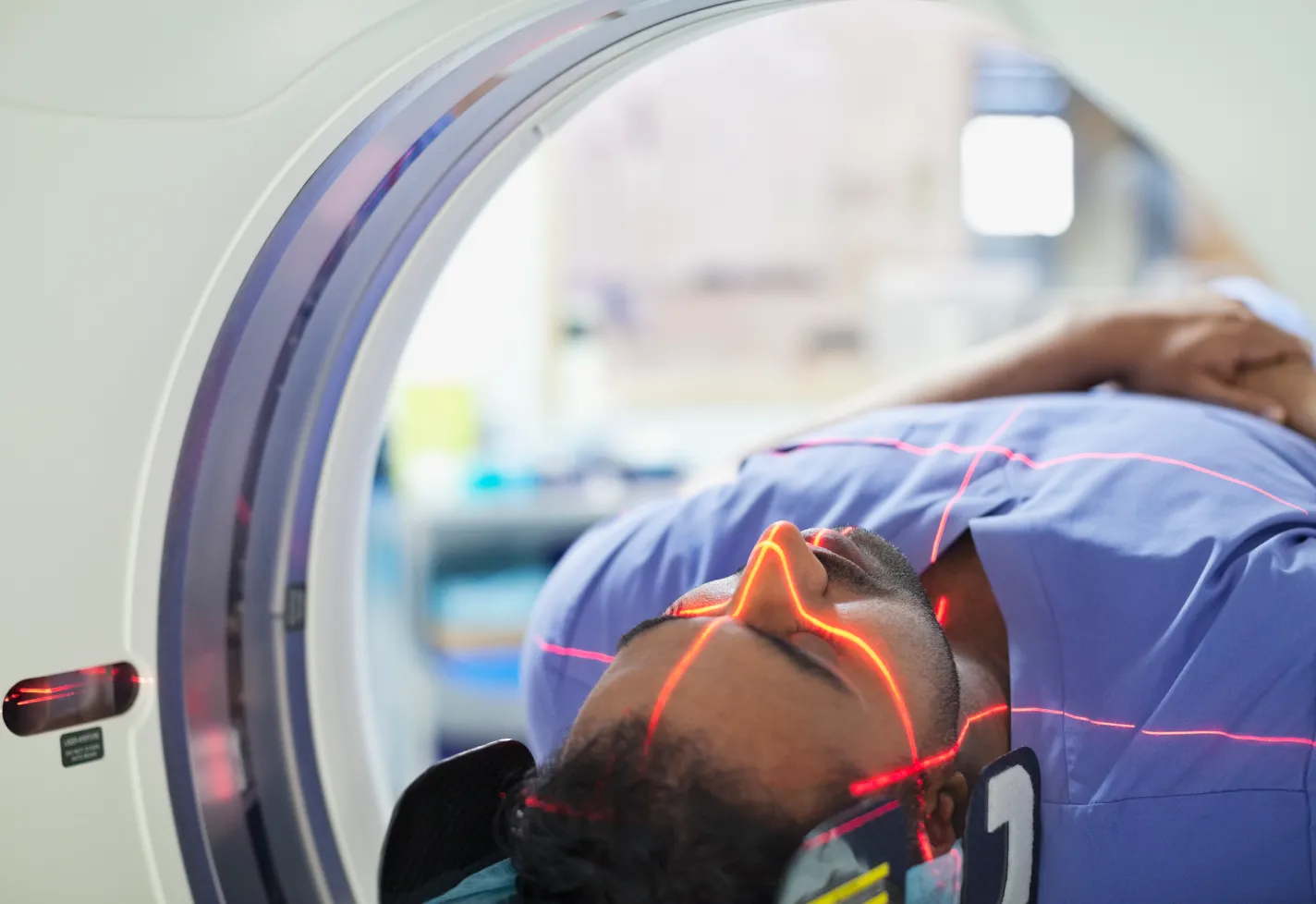Why Choose Novant Health?
Our neurologists and pharmacists have the time, the expertise and the resources to determine which medications will slow your progression, ease your symptoms and speed your recovery from relapse with the least adverse side effects.
If you receive infusions, the pharmacist who prepares your medications will walk you through your first treatment and address questions you may have about potential side effects of the medication. You can count on us to help you find the therapy that works best for you.

Many of the lab, imaging and infusion services you’ll need throughout your treatment will be available at, or within walking distance, of your neurologist’s clinic. This means you can get more of the care you need with fewer appointments and less travel.
If it’s more convenient, you can ask your care team if there are options to have your imaging, lab work and infusion services done at another Novant Health location. Either way, your care team will monitor your progress closely via our electronic health records system and follow-up visits.

Thanks to the leadership of our neurologists, Novant Health can provide access to clinical trials testing novel medical therapies for multiple sclerosis.

Nationally Recognized for Multiple Sclerosis Care
As a Partner in MS Care, Novant Health provides enhanced access to resources, programs and services offered by the National MS Society to provide the highest level of care available to those living with multiple sclerosis.
MS symptoms, risks and causes
How is multiple sclerosis diagnosed?

The symptoms of multiple sclerosis often resemble those of other diseases, so diagnosis involves eliminating other possible conditions. Since there's no specific multiple sclerosis test, your physician will review your medical history to understand your risk factors and discuss your symptoms before recommending a neurological examination or other testing.
Tests typically performed for a multiple sclerosis diagnosis include:
- Imaging studies like an MRI
- A cerebrospinal fluid study (spinal tap)
- Blood work
Your initial MS visit
Your first visit with a multiple sclerosis specialist will last approximately 90 minutes.
Your physician will perform a neurological examination, look at your complete medical history, and may order new lab work and imaging studies. You may need to undergo multiple tests before your neurologist can confirm your diagnosis and begin treatment.
A team approach to treatment

At Novant Health, we take a team approach to your multiple sclerosis treatment. Our specialists work collaboratively to provide holistic care that treats all your multiple sclerosis symptoms and supports your overall physical and mental health.
Having a team of experienced multiple sclerosis specialists and the latest diagnostic and treatment tools, enables us to diagnose and begin treating MS promptly.
Your MS care team may include:
- Neurologists
- Neuropsychologists
- Pharmacists
- Social Workers
- Speech therapists
- Physical therapists
MS treatment and services
Spasticity and Multiple Sclerosis

Spasticity is one of the most common symptoms of multiple sclerosis. The condition involves muscle stiffness and uncontrollable spasms that usually occur in your arms or legs. Spasticity can be extremely painful or feel like a mild ache or tightness. It may disrupt sleep and impair motor skills to the point where everyday activities are difficult or impossible to perform.
Causes of spasticity
When MS attacks the central nervous system, the deterioration of the myelin, which covers and protects your nerves, can disrupt the transmission of electrical signals in your body. The signs of spasticity often appear as the nerve damage progresses. It can also intensify in extreme heat or cold or when aggravated by another medical condition.
Treatment for spasticity
Spasticity management is intended to reduce symptoms and help restore your motor control. Physical therapy involving stretching is a critical component of your care plan that helps maintain range of motion and flexibility. You may also be fitted with splints or braces to aid balance and stability. Medication and Botox® injections are often prescribed for spasticity. In some cases, an intrathecal baclofen therapy pump may be implanted to deliver a muscle relaxant directly to affected areas of the spinal cord.
